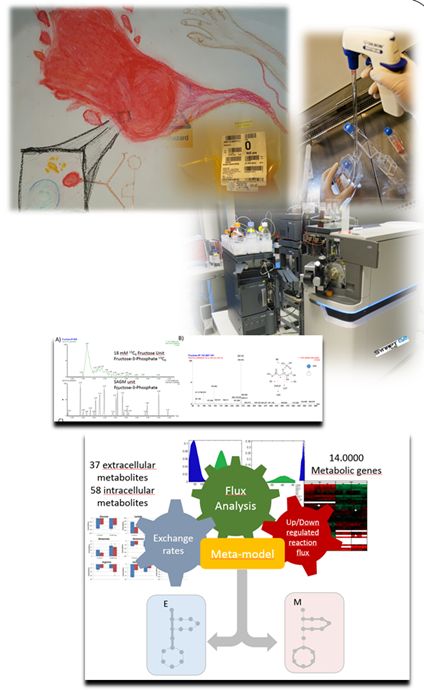T he mechanism of how genes and the environment collectively contribute to human disease phenotypes can be studied using a systems biochemistry approach. Because blood acts as a molecular gateway to most tissues, it contributes to defining the human cell and tissue environment and can be a readout for human health.
he mechanism of how genes and the environment collectively contribute to human disease phenotypes can be studied using a systems biochemistry approach. Because blood acts as a molecular gateway to most tissues, it contributes to defining the human cell and tissue environment and can be a readout for human health.
Work within the Rolfsson lab is collaborative and focused on how metabolism contributes to cellular phenomena using mass spectromety and computational biology methods. Ongoing projects include
a) Red cell and platelet metabolism,
c) The epithelial to mesenchymal transition.
In collaboration with local industry we are also applying our research to advance the understanding of wound dressings made from fish skin.
Our goal is to make meaningful contributions to the fundamental biochemical understanding of blood-tissues interactions and the educate students with employable skillsets in analytical chemistry and computational biology that are of practical value to the 21st century bio-economy.
